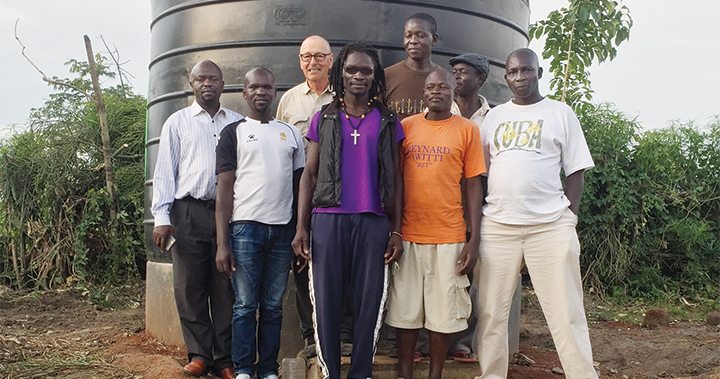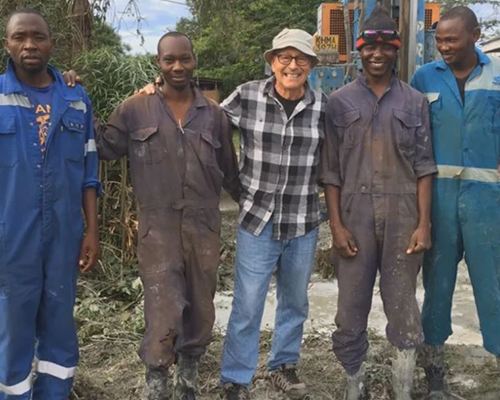When I was a freshman, Willamette’s motto, “Not unto ourselves alone are we born,” wasn’t as widely talked about as it is now. But it was the time of JFK and the Peace Corps, and I guess I absorbed the concept of helping others by a kind of osmosis.
I grew up on a farm, and coming to Willamette was a big step. I really benefited from my liberal arts education, which gave me a broad appreciation for art, science and languages, as well as a more global vision.
I spent my junior year in Paris through Hamilton College in New York, as Willamette didn’t even have a study abroad program at the time. That international perspective was an important part of my career, and it eventually led me to what I’m doing now.
I taught French in high schools for 40 years in Oregon, Washington and California, and I started my own home stay program to take students abroad so they could learn to appreciate other cultures.
When I retired in 2004, my former Beta Theta Pi roommate, who had been teaching in Kenya, asked me to visit. That’s where I met Daniel, a local man working on a tea plantation, making about $2 a day and unable to support his family. He’d qualified to go to university but couldn’t afford it. I offered to put him through college, and I supported him for five years through pharmacy school.
Each time I visited Daniel’s family, I came across other students who were struggling. So, I put them through high school or college. I’ve always valued education, and it’s good to be able to make an immediate difference in someone’s life, especially when you know them personally. Education changes people’s lives — plus, it has ripple effects on an entire country.
One of my students in Mali, now in his third year of radiology school, will be one of only about 12 radiologists in the entire country. Other students have gone on to work as nurses, an accountant, a pharmacist, a doctor, a lawyer or in the hospitality and tourism industry.
When I reached the limit of my personal resources in 2017, I formed a nonprofit, WE Care (Water and Education Care International). The nonprofit recently drilled a well in Kenya to bring clean water to families in a village. We’ve helped over 30 students in Kenya, Mali and Cambodia, from high school through post-graduate work. It costs about $300 to send students to high school for a year, plus the cost of books and uniforms.
That’s not a lot to many Americans, but many of these people are subsistence farmers. We helped one 90-year-old woman in Kenya who was raising her orphaned grandchildren. She was determined to put them through school because, like many people in these countries, she saw education as a way out of the cycle of poverty.
It’s amazing to have these connections around the world. I read something the other day that fits me: “I started traveling, and I went the first time as a tourist and came home as a humanitarian.” It’s interesting to see wildlife or beautiful places, but the most important part is the connections you make with people.
Those connections also reach back to Oregon. In Kenya, one of my friends’ mother, Celestine, works as a tailor. I thought some fabric scraps in her shop could be made into a quilt. I drew up a pattern, and Celestine began sewing the vibrantly patterned scraps into 12-inch squares, each one depicting the village’s mud huts.
I brought the squares home, and Bonnie Hull, wife of Willamette professor emeritus Roger Hull, sewed them together and hand-quilted them.
Celestine made two other quilt tops, which two volunteers in Salem finished. We plan to auction off the quilts to raise money for WE Care.
Those quilts represent what WE Care is doing— people from different countries combining their efforts to accomplish something good.
What does the Willamette motto mean to you? How does it show up in your life? Email wu-stories@willamette.edu.
This article was originally published in the fall 2018 issue of Willamette magazine.


